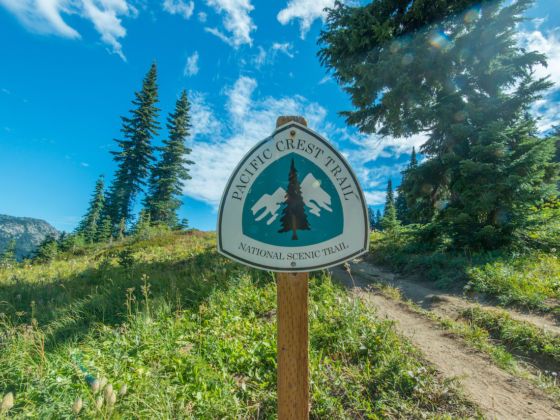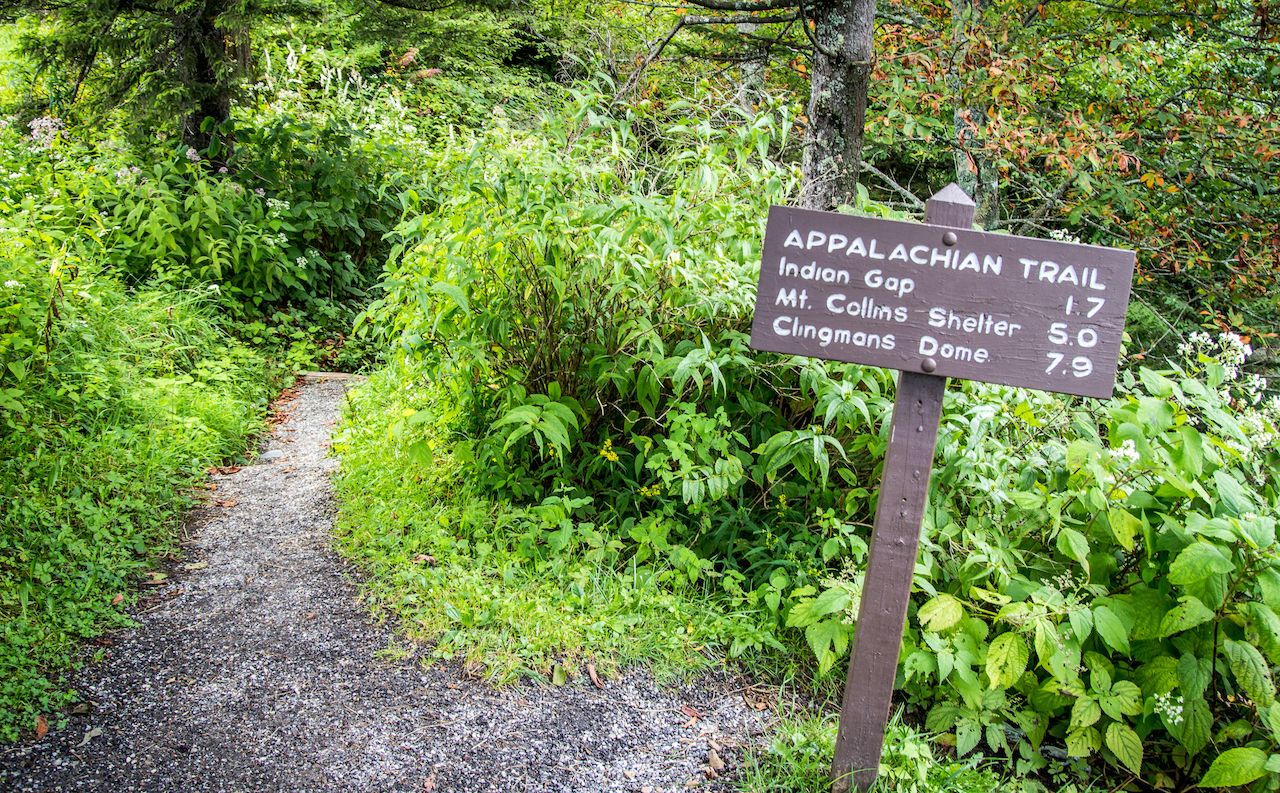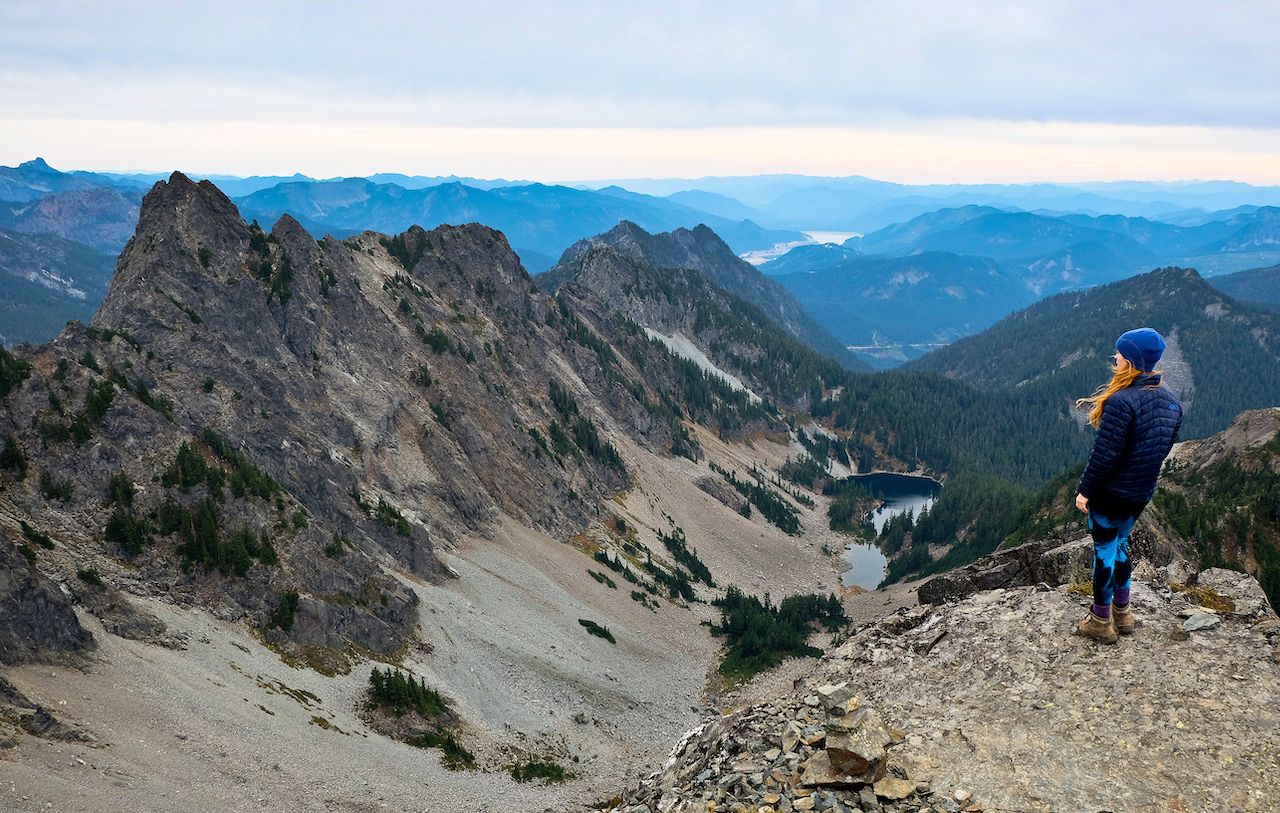The coronavirus has upended society across the globe. In the outdoors world, the spotlight has been turned to thru-hikers after a hiker’s death along the Pacific Crest Trail on March 28. The hiker, who suffered unspecified injuries in the San Jacinto Mountains, was pronounced dead by the rescue team upon arrival. The following day, two other hikers were rescued after being stuck on a patch of trail covered in snow and ice.

Though these incidents were not directly related to the coronavirus, the thru-hiking community is stuck with the tough question of whether or not now is an appropriate time to undertake long-distance treks, as medical crews work to contain a global pandemic and critical supplies are in high demand. Undertaking a trek across the Pacific Crest Trail, the Continental Divide Trail, or Appalachian Trail isn’t a split decision — these journeys can take upwards of six months to complete. Unlike simple day hikes, a thru-hike consumes the trekker’s entire life not only on the trail but also in the months leading up to the journey. Should plans be put on hold until the pandemic calms down? Should those on the trail pull the plug? This is a complicated issue, but the only viable conclusion is to stay — or head — home. Here’s why.
Social distancing is as important in nature as it is in cities.

Photo: Patrick Poendl/Shutterstock
Two main angles must be addressed in answering the question. First is the overcrowding of these trails by day hikers, a factor taking place across the country as isolated people look to the outdoors as a viable means of escaping their homes. Popular systems such as the Appalachian Trail are experiencing swarms of day traffic. Over the past two weeks, parking lots have filled to capacity at popular trailheads along the 2,200-mile trail, overwhelming volunteers and increasing the possibility of the coronavirus spreading from hiker to hiker.
In a letter titled “Please Stay Off The Appalachian Trail,” Sandra Marra, CEO of the Appalachian Trail Conservancy, pleads with hikers to visit local parks instead. “In these unprecedented times, I am making an unprecedented request: please stay away from the Appalachian Trail (A.T.). Whether your hike is for a couple of hours or a couple of days. Staying away from the Trail minimizes the spread or contraction of COVID-19.”
A similar sentiment was expressed by the Pacific Crest Trail Association. “For everyone’s sake, it’s time for you to do your part and cancel or postpone your long-distance trip,” said a statement on its website.
Some trekkers argue that it isn’t thru-hikers who are packing the trail, and that they should be allowed to carry on as planned. They’re in the wilderness, after all. It’s the day users who return home after a few hours who should change their plans. But the virus doesn’t distinguish between the two. An encounter with another person or party on the trail, unknowingly contagious without symptoms, has the possibility to spread to thru-hikers who then carry the virus with them onward to the next refuel point or rest stop.
It only takes one person to bring the virus onto the trail.

Photo: ehrlif/Shutterstock
That infected hiker, even without symptoms, then endangers the small communities along the trail. The small community hospitals and medical centers in the towns on and around the trails simply cannot support an outbreak. Should the hiker become ill and need medical care, not only are they putting the community and other hikers at risk, but they’re also taking up a precious hospital bed. Cases of thru-hikers bringing COVID-19 into small communities have yet to be reported, but that’s not to say we shouldn’t be abundantly cautious. Look to Moab, Utah, as a prime example of an outdoor town that’s still struggling to deter its normal spring onslaught of hikers, mountain bikers, and national park visitors, as their tiny hospital would stand no chance against an outbreak among even the locals, let alone road trippers.
The Continental Divide Trail Reddit forum is abuzz with the topic. “Although it might seem like being out in the wilderness, as we are on a thru hike, would be the ideal model of practicing ‘social distancing,’ as I first thought when I saw that the coronavirus was in the process of spreading across the country and the world, thru hiking is in fact one of the worst things that we could be doing to stop the spread of this pandemic,” said user Stretch18.
Thru-hiking during the pandemic is an unnecessary risk.

Photo: Tobin Akehurst/Shutterstock
Ultimately, the issue comes down to the sacrifice of the individual for the betterment of the whole. These treks take months or years of planning and training, but the risk of injury on a 2,000-mile hike is a risk not worth taking when medical workers have a global pandemic to deal with, and small communities are particularly vulnerable.
The trail isn’t going anywhere. Marra, in her effort to dissuade Appalachian Trail hikers, closed with an emphasis on the all-in effort the outdoors community needs. “There is an unfortunate truth about this virus: unless everyone is safe, no one is safe. So, take a walk around the block. Spend time with your loved ones. And, please, stay home.”